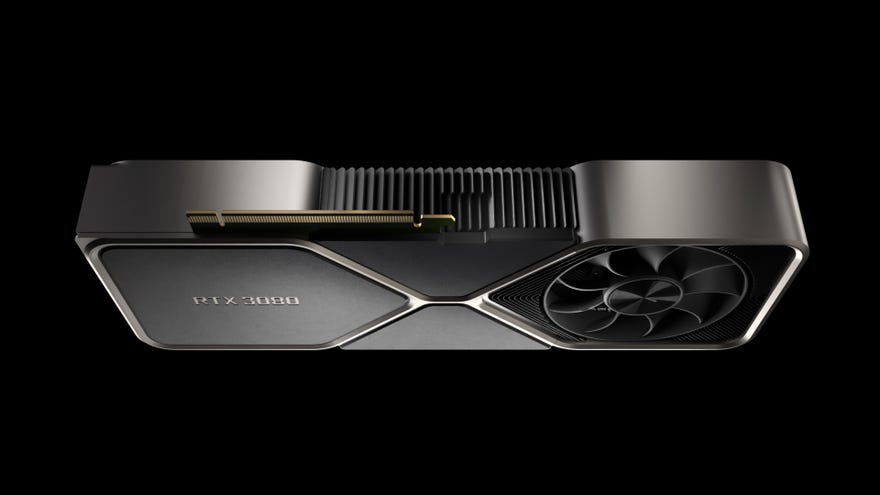RPS Asks: are today's RTX 3080 reviews giving you buyer's remorse over the RTX 20 series?
Our thoughts are with you during this difficult time.
Nvidia's new RTX 3080 comes out tomorrow, and reviews are starting to hit the internet. Ours isn't quite ready yet - it still needs a little more time in the benchmarking oven - but so far the praise has all been very glowing. And why wouldn't it? When your initial pitch is twice the performance of the RTX 2080 for the same amount of money, it's effectively a slam dunk for Nvidia's PR and marketing teams.
And yes, I'm sure the whole 2% of Steam users who actually own 4K displays are well up for the RTX 3080. But what about the folk who already own an RTX card? I'd be feeling pretty annoyed if I'd spent £700-odd on an RTX 2080 card in the last year or so only for this to come along now, and I feel particularly bad for the people who bought RTX 2080 Tis, whose £1000 / $1000+ graphics cards are soon going to be shown up by the RTX 3070 when it launches for literally half that amount next month.
So, RPS asks: are all these RTX 3080 reviews giving you buyer's remorse?
I know it's the curse of buying any piece of technology that it's inevitably going to be replaced by something better almost as soon as you buy it, but this generation of Nvidia RTX 3000 graphics cards seem particularly galling. After all, graphics cards aren't phones. They're not the type of thing you upgrade every year when a newer, better one comes along. They're big investments that you'll be using for several years to come, and I don't think it's unfair to say that you want to feel good about that purchase for as long as possible.
It's been two years since the RTX 2080 came out, and at the time it was certainly an impressive-looking graphics card. While my Intel Core i5-8600K processor struggled to get the most out of it at 1920x1080, it was still capable of hitting at least 70fps on max settings at 1080p in my benchmarking suite, if not substantially higher around the 110fps mark. It also had more than enough power to play games at 60fps on max settings at 2560x1440, regardless of whether I had a Core i5 or Core i7 sitting inside my PC, and it was a good card for playing games on Medium to High settings at 4K, too.
It wasn't that much of a bump over the outgoing GTX 1080, all told, but the addition and promise of all that shiny ray tracing tech still made the RTX 2080 a tantalizing proposition nonetheless. As it turns out, the number of games that actually support ray tracing and Nvidia's performance-boosting DLSS tech right now is still pitifully small. Just how small, I hear you cry? There are 14 games that support ray tracing right now. 14 games! In two years! Madness.
Truth be told, I still think it will be a while before we start to see ray tracing become a standard addition to PC games, but the time it takes to get there is only going to get shorter now the Xbox Series X / S and PS5 have support for it as well (thanks, AMD). That's still a fine thing for existing RTX 20 owners, but they also needn't have bothered jumping in early, either.
It would be different if we were swimming in ray tracing and DLSS games that meant we could actually get some use out of the RTX-ness of the 20-series GPUs, but we're not. Instead, we're left with the biggest case of early adopter regret I think I've ever experienced during my time as a tech journalist.
AMD's Big Navi GPUs can't come soon enough, lemme tell ya.









